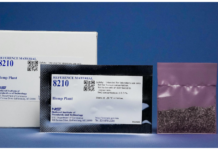“The check is in the mail” appears to be the new mantra of the United States cannabis industry. While delinquent payments sadly have been a standard course of practice for many years, the situation has reached a critical level and become an existential threat to operators throughout the supply chain.
Beau Whitney, founder of Whitney Economics, an Oregon-based cannabis consulting and research firm, recently deployed a nationwide survey of cannabis operators and ancillary businesses to assess the impact of delinquent payments. Whitney received input from more than 100 operators of all sizes.
The preliminary results paint a grim picture of the industry’s status in 2023. Forty-three percent of respondents stated delinquent accounts receivable are impacting their ability to service debt; 32 percent reported an inability to pay federal taxes due to delinquent receivables. In fact, 59 percent of respondents reported delinquent receivables are having a greater impact on their business than Internal Revenue Code Section 280E.
Some survey respondents indicated the delinquent balances on their ledgers equal more than two months of revenue, totaling millions of dollars, crippling their budgets, and severely impacting their funds for day-to-day operations.
“If retailers don’t pay suppliers, then the suppliers can’t pay the test labs or the distributors, who can’t pay their attorneys or accountants,” said Whitney. “So the problem is widespread, and a lot of people aren’t getting paid to the point where it’s becoming a pretty serious issue. It has this ripple effect, but a lot of it is because the retailers are the price-makers, not the price-takers.”
In the spring of 2023, suppliers in California began publicly complaining that the Golden State’s largest distributor, HERBL, was significantly behind in paying its bills. Even though the state does not allow brands to sell directly to retailers, brands called on retailers to stop working with the company, which delivered to more than 1,000 stores and sold $700 million worth of products in 2022. By the time HERBL’s primary lender, East West Bank, canceled the company’s line of credit, HERBL owed at least $2.2 million to brands and was owed $1.9 million by retailers who weren’t paying their bills, according to SFGate.
Whitney said independent retailers often receive the brunt of delinquency criticism but, in fact, multistate operators (MSOs) share the blame. “In Nevada, some [survey respondents] said there are a lot of big MSOs controlling the market through demand and then not paying suppliers,” he said. “So they’re putting the small [product brands] in distress and then taking them over.”
While 80 percent of survey respondents reported they have a delinquency issue, 31 percent said MSOs owe a significant portion of their past-due receivables. Whitney hasn’t determined how much money that 31 percent represents.
The situation produces a particularly harsh impact in this industry because of a lack of access to traditional financial tools such as bridge loans or loans against accounts receivable. As a result, Whitney said, the best interest rates some companies can secure are between 30 and 50 percent.
The combination of high past-due receivables and high interest rates can crush profitability. Whitney recently reported only 24 percent of U.S. cannabis companies are turning a profit. Since the plant is illegal at the federal level, operators do not have access to bankruptcy protection, so when a company fails and loans are secured with personal property, operators are subject to devastating losses that go beyond their business.
“When I did this analysis, total chicken sales in the United States were $74.9 billion, and the total addressable market for cannabis is $105 billion,” Whitney said. “So if 75 percent of all the chicken farmers were in economic distress, like in cannabis, then you could bet your sweet ass Congress would come to the rescue and provide grants or better business practices or regulations to ensure all the chicken farmers were in better fiscal and financial health. This is not occurring in cannabis because of its federal illegality and all the stigma associated with that.”










[…] Whitney Economics deployed a survey asking cannabis operators and ancillary businesses about the impact of delinquent payments. In addition, the Whitney Economics team conducted interviews with survey respondents and validated […]